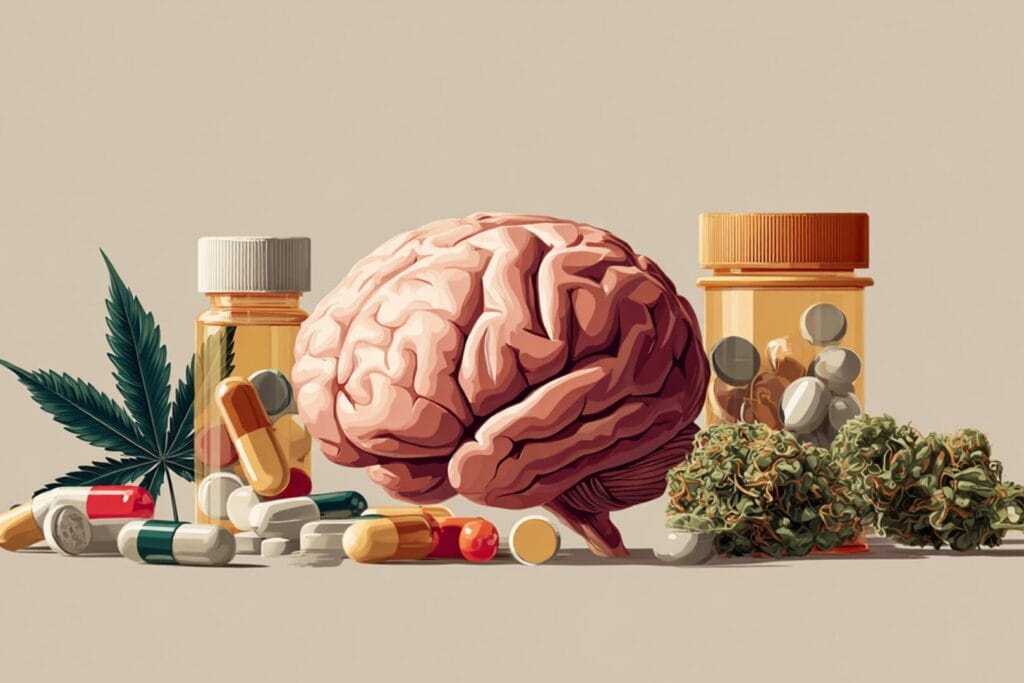In addiction treatment and recovery, traditional methods usually focus only on addressing the physical parts of dependence. Sometimes, these approaches overlook the mental, emotional, and spiritual elements that can profoundly affect someone’s well-being.
However, as there’s been an evolution in the understanding of addiction, so has there been a growing recognition that a holistic approach is necessary for sustainable recovery. In a holistic approach to addiction treatment and recovery, the entirety of a person is considered instead of just their substance abuse and addiction.
Alcohol addiction is a complicated struggle, with effects rippling through every part of a person’s life. Holistic approaches for alcohol addiction and recovery can be essential for healing. From mindfulness to nutrition, there are many paths towards a holistic approach to treating alcohol addiction.
The Complexities of Alcohol Addiction
Alcohol has a potent influence on the brain and body. It rapidly enters the bloodstream and then travels to the brain, altering neurotransmitter levels. In doing so, it affects behavior, cognition, and mood.
Alcohol disrupts the balance of neurotransmitters in the brain, like glutamate and gamma-aminobutyric acid (GABA). GABA is enhanced by alcohol and is an inhibitory neurotransmitter. Alcohol’s effects on GABA lead to sedation and relaxation. Alcohol suppresses glutamate, on the other hand, which is a stimulatory neurotransmitter. The suppression of glutamate is why alcohol has depressant effects.
Other effects of alcohol include impairments in cognitive function, liver damage, heart and gastrointestinal problems, and nutritional deficiencies.
Alcohol addiction (alcoholism) is a disorder influenced by genetics, psychological factors, and the environment. Understanding the complex interrelation between these factors is necessary for prevention and treatment strategies to address the underlying mechanisms of addiction.
Treatment Approaches for Alcohol Addiction
There are many treatment approaches for alcohol addiction, each being tailored to the specific needs of the individual. Some of the treatment modalities commonly used for alcohol addiction include:
- Medical detoxification: For people with severe alcohol dependence, a medical detox may be needed for safe withdrawal symptom management. This involves supervised medical care in a hospital or detox facility, ensuring safety and comfort as an individual withdraws.
- Behavioral therapies: These are a way to identify and change problematic behaviors that could play a role in alcohol addiction. Cognitive-behavioral treatment, for example, helps with identifying and changing negative thought patterns and behaviors linked to alcohol use. Motivational interviewing is another approach that aims to increase motivation and commitment to change.
- 12-step facilitation therapy: Based on principles from Alcoholics Anonymous (AA), this is technically also a behavioral therapy. It encourages participation in 12-step programs and emphasizes the acceptance that you’re powerless over alcohol, instead relying on a higher power for support.
- Medication-assisted treatment: MAT integrates the use of certain medicines to manage alcohol cravings and withdrawal symptoms. Acamprosate is an example that normalizes brain function and reduces cravings after someone stops drinking. Disulfiram causes unpleasant symptoms if someone drinks, and naltrexone blocks alcohol’s pleasurable effects.
- Support groups: AA is just one type of support group for alcohol addiction and recovery. Others, like SMART Recovery, provide peer support, accountability, and encouragement for people in recovery.
- Family therapy: Alcohol addiction affects not only the individual but their loved ones. Family therapy can facilitate better communication and address dysfunctional patterns, strengthening family relationships to support the recovery journey.
- Dual diagnosis treatment: It’s common for people with an addiction to have co-occurring mental health disorders like anxiety, depression, or trauma-related disorders. Dual diagnosis treatment addresses both mental health and substance use issues at the same time for comprehensive care.
Finally, holistic approaches like yoga, mindfulness, and meditation can all be valuable integrations into an alcohol addiction treatment plan. They complement traditional treatments and address the needs of the mind, body, and spirit.
What Are Holistic Approaches for Alcohol Addiction and Recovery?
Holistic alcohol addiction and recovery approaches focus on treating the individual as a whole. These approaches don’t just consider the physical components of addiction but the emotional, spiritual, and mental. Holistic treatment and recovery approaches recognize the interconnected nature of health and well-being, striving to promote healing and balance in every area of life.
Examples of specific holistic approaches that help with treating addiction and sustaining recovery can include:
- Mindfulness and meditation include cultivating present-moment awareness and non-judgmental acceptance of thoughts, emotions, and sensations. Meditation can help people in recovery gain more self-acceptance, cope with cravings without alcohol, and manage stress.
- Yoga and exercise: Regular physical activity promotes mental and physical health and well-being. Exercise releases endorphins, which act as natural mood lifters, helping to reduce stress and anxiety, both of which are triggers for alcohol use.
- Nutritional therapy: Proper nutrition plays a role in alcohol addiction recovery. Nutritional therapy emphasizes the reversal of nutrient deficiencies caused by alcohol misuse and supports health overall. A diet with the proper vitamins, minerals, and antioxidants can help repair alcohol-induced damage to the body and support detox.
- Nature therapy: Spending time in nature through outdoor activities has healing effects emotionally and mentally. Nature therapy promotes relaxation, reduces stress, and fosters a connection to the world.
- Spiritual exploration: For some people, exploring spirituality or engaging in things like meditation or a connection with a higher power can help give meaning, purpose, and guidance in alcohol addiction recovery. Spirituality provides support and resilience during tough times, helping to cultivate inner peace.
Other beneficial holistic therapies in treatment and recovery include massage therapy and energy healing techniques like Reiki.
While holistic therapies aren’t a standalone treatment for addiction, when they’re integrated into a comprehensive treatment plan, they help address the underlying root causes of alcohol addiction. They help with healing and transformation.
Specifically, holistic approaches to treating alcohol addiction include more profound levels of healing, improved overall well-being, personalized care, and a reduced risk of relapse. Holistic practices also empower individuals to take active roles in their recovery journeys, exploring who they are beyond their addiction.
At San Diego Detox, we integrate a combination of traditional and evidence-based therapies with individualized holistic treatments, improving outcomes and helping you discover a new life that’s free from addiction. Contact us today if you’d like to learn more about our programs.







